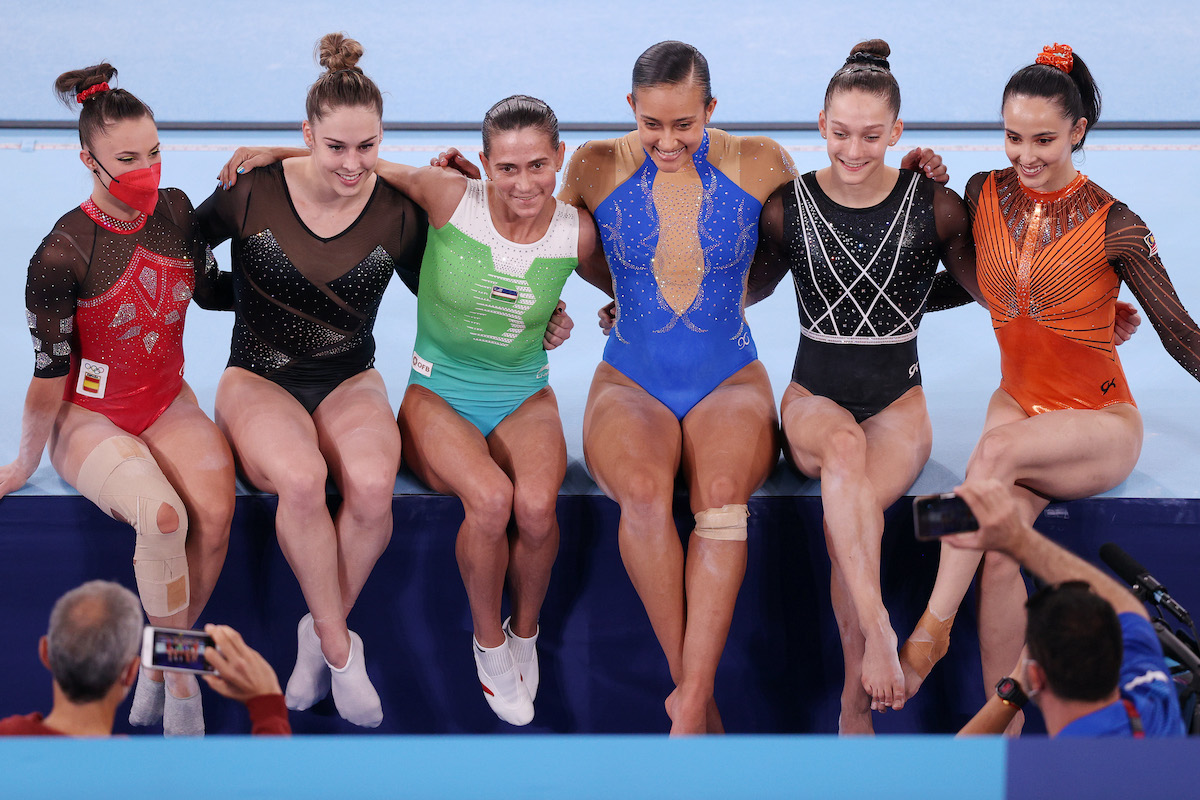Gymnast Luciana Alvarado Seems To Have Found a Way Around the Olympics’ No-Protest Rule

Leading up to the Tokyo Olympics, the International Olympic Committee has relaxed—but definitely not eliminated—its ban on athletes protesting.
Rule 50 of the Olympic Charter states “No kind of demonstration or political, religious or racial propaganda is permitted in any Olympic sites, venues or other areas.” This year, though, with the rise of athletes using their platform to protest racial injustice, the IOC introduced rule 50.2.
That rule allows for athletes to “express their views” in certain settings, including during interviews, on social media, and in their area of play before or after competition but not during. “Expressions” are also not permitted during official ceremonies or in the Olympic Village.
“When it comes to clothing, the IOC will allow athletes to wear apparel at Olympic venues with words such as peace, respect, solidarity, inclusion and equality. But phrases such as Black Lives Matter aren’t part of the messaging,” writes NPR.
The amendment to rule 50 was apparently introduced fairly hastily and some athletic groups have criticized it for its lack of transparency, saying it could actually deter athletes from expressing themselves and is destined to lead to “arbitrary decisions” regarding individual expressions.
But 18-year-old Luciana Alvarado, the first gymnast from Costa Rica to ever qualify for the Olympics, seems to have found a loophole to the IOC’s ban on protests during competition. She ended her floor routine with an unmistakable pose, dropping to one knee and raising her fist in the air.
Costa Rican gymnast Luciana Alvarado concluded her Olympics floor routine by taking a knee in support of the Black Lives Matter movement, she said. https://t.co/209VfjEtMo pic.twitter.com/GxkU1FmqmG
— ABC News (@ABC) July 27, 2021
Alvarado told the AP that the pose was deliberately meant to invoke the Black Lives Matter movement.
“Alvarado said Friday after she performed the same move at training that she hoped to highlight the importance of equal rights on a global stage, and champion treating all with respect and dignity,” writes the AP.
“Because we’re all the same,” she told the outlet, “and we’re all beautiful and amazing.”
Speaking to the podcast GymCast following her routine, she said:
My cousin and I, we both do it in our routines. And I feel like if you do something that brings everyone together, you know, and you see that here, like ‘Yes, you’re one of mine, you understand things’, the importance of everyone treated with respect and dignity and everyone having the same rights because we’re all the same and we’re all beautiful and amazing so I think that’s why I love to have it in my routine and I love that my little cousin does it on her routine too.
Alvarado did not score well enough to move forward to the finals, but she made history twice during her Olympic stint.
Luciana Alvarado made history in #Tokyo today as the first gymnast from Costa Rica to ever compete at the Olympics. Then she did it again by using her platform to make a statement in support of #BlackLivesMatter : https://t.co/vR8HecdOGg
— tess ⭐️ (@tess_demeyer) July 25, 2021
(image: Ezra Shaw/Getty Images)
Want more stories like this? Become a subscriber and support the site!
—The Mary Sue has a strict comment policy that forbids, but is not limited to, personal insults toward anyone, hate speech, and trolling.—
Have a tip we should know? tips@themarysue.com